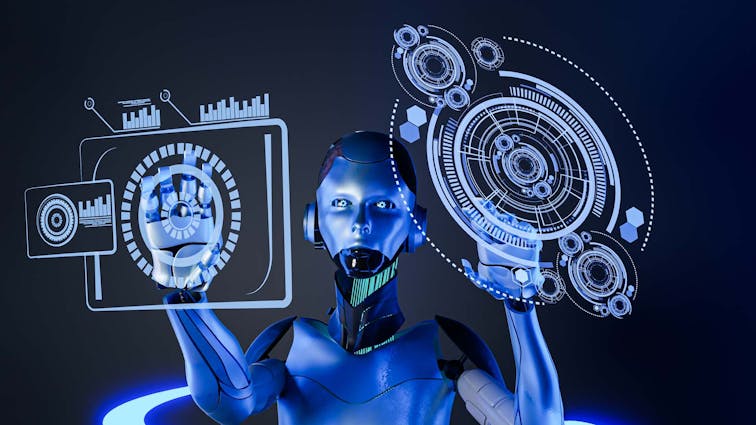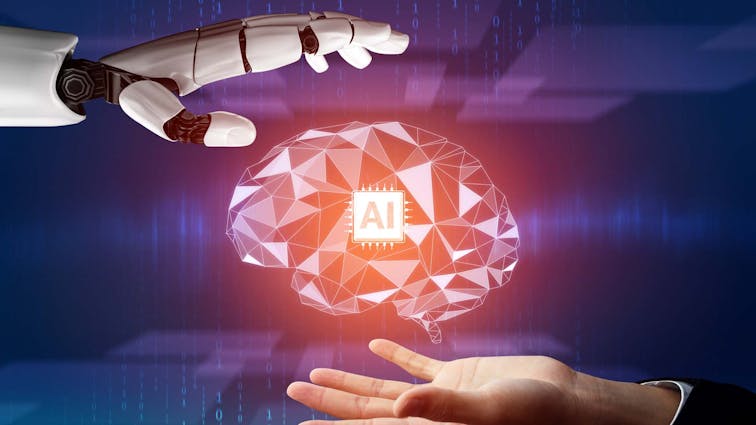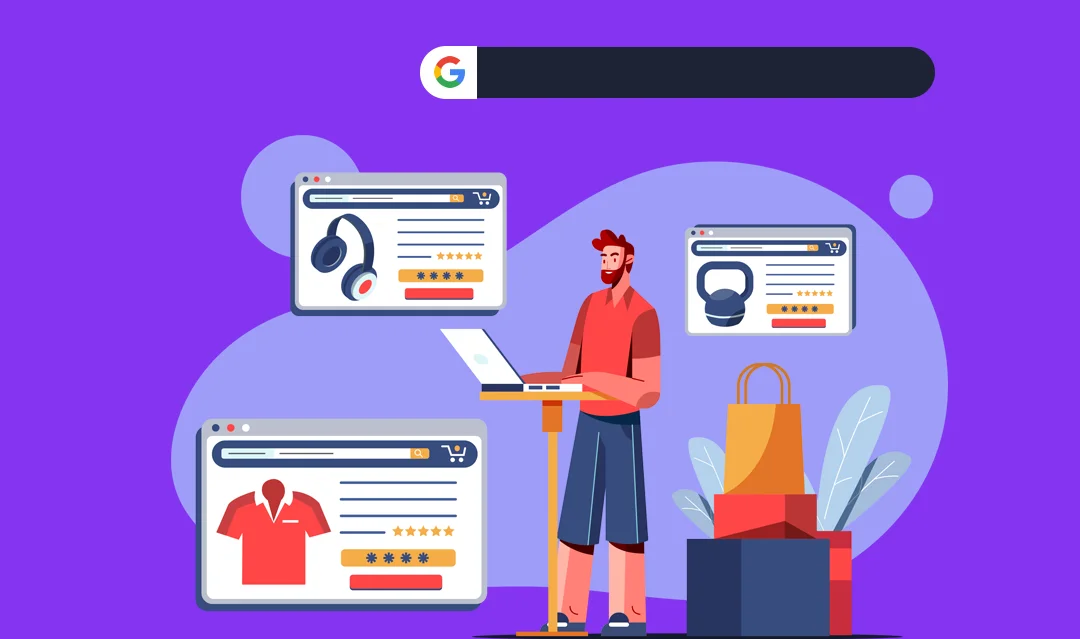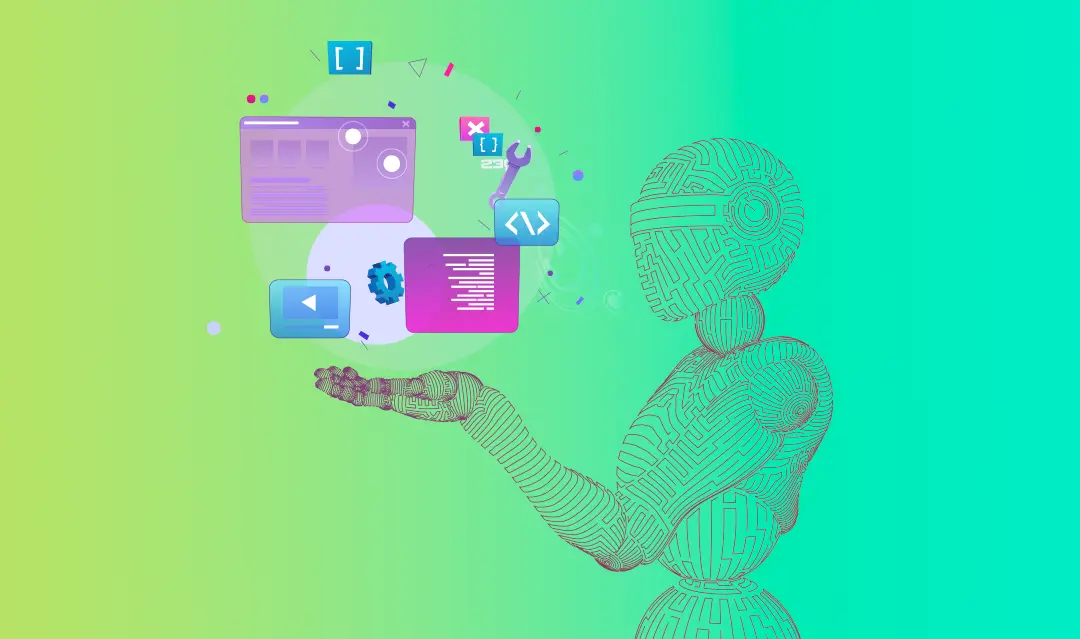
20 AI Business Ideas for Entrepreneurs in 2024: Profitable Startup Concepts
Artificial intelligence (AI) is the hottest buzzword in business today. And for good reason. AI has the potential to revolutionize every industry and aspect of our lives.
From self-driving cars to medical diagnostics to customer service chatbots, AI is already being used in a wide range of applications. And as AI technology continues to develop and mature, it is becoming increasingly accessible and affordable for businesses of all sizes.
This is leading to a surge in the number of AI-powered businesses being launched and the adoption of AI by existing businesses.
The current state of the AI market
According to a report by Fortune Business Insights, the artificial intelligence market size was USD 428.00 billion in 2022 and is projected to grow from USD 515.31 billion in 2023 to USD 2,025.12 billion by 2030, exhibiting a CAGR of 21.6%.
- The increasing demand for AI-powered solutions from businesses across all industries
- The growing availability of data to train AI models
- The rapid advancements in AI hardware and software technologies
Is AI a profitable business?

Yes, AI can be a profitable business. Here are some key points to consider:
- AI in Retail: According to a report by Grand View Research, the global AI in retail market size was valued at USD 5.79 billion in 2021 and is expected to expand at a compound annual growth rate (CAGR) exceeding 23.9% from 2022 to 2030.
- Profit Proximity: The profitability of AI depends on something known as profit proximity. This refers to the type of business problems that AI is applied to. For instance, AI applications related to customer behavior, product recommendations, and advertising can have an immediate effect on revenues.
- AI Startups: There are numerous AI-based business and startup ideas that have the potential to be profitable. For example, an AI-based photo editing app business could leverage artificial intelligence to enhance and transform images, providing automated editing tools that eliminate tedious manual processes usually associated with image editing.
- Strategic Benefits: AI can yield strategic benefits, but they mostly accrue to companies that use AI to explore new ways of creating value rather than just cutting costs.
However, it’s important to note that while AI has the potential to be profitable, its implementation does not automatically translate into profitability for businesses.
The success of an AI business depends on various factors including the specific use case, the quality of the AI technology, market demand, and more.
Therefore, thorough research and planning are crucial when starting an AI-based business.
How to start an AI business
If you are interested in starting an AI business, there are a few things you need to do:
- Identify a problem that AI can solve. What are the biggest challenges that businesses or consumers are facing? How can AI be used to solve these problems?
- Develop a unique AI solution. Once you have identified a problem that AI can solve, you need to develop a unique AI solution. This could involve developing a new AI algorithm or applying existing AI algorithms to a new problem.
- Build a team of experienced AI professionals. AI is a complex field, so it is important to build a team of experienced AI professionals who can help you to develop and deploy your AI solution.
- Secure funding. Starting an AI business can be expensive, so you need to secure funding from investors or venture capitalists.
- Market and sell your AI solution. Once you have developed and deployed your AI solution, you need to market and sell it to potential customers. This could involve developing a sales and marketing strategy, attending trade shows, and partnering with other companies.
What are the best AI business ideas that can make money?

1. AI-Based Entertainment Platform
An AI-based entertainment platform can leverage artificial intelligence to enhance the user experience in various forms of entertainment, such as gaming, streaming services, or virtual reality.
This can include personalized content recommendations, immersive experiences, and AI-generated content.
The platform can also utilize AI to analyze user behavior and preferences to provide targeted advertisements and monetization opportunities.
2. AI Healthcare Platform
An AI healthcare platform can revolutionize the healthcare industry by utilizing artificial intelligence to improve patient care, diagnostics, and treatment.
This can include AI-powered medical imaging analysis, predictive analytics for disease detection and prevention, virtual health assistants for patient communication and triage, and personalized medicine recommendations based on patient data.
The platform can generate revenue through partnerships with healthcare providers, pharmaceutical companies, and insurance providers.
3. AI eLearning Platform
An AI eLearning platform can transform the education industry by incorporating artificial intelligence into online learning experiences.
This can include personalized learning paths, adaptive assessments, intelligent tutoring systems, and automated grading and feedback.
The platform can generate revenue through subscription models, partnerships with educational institutions, and licensing content to other eLearning platforms.
4. AI-driven cybersecurity startup:
AI can be used to develop new cybersecurity solutions that can detect and respond to threats more quickly and effectively than traditional methods.
AI can also be used to improve the security of existing IT systems and networks.
The cybersecurity market is expected to reach $382 billion by 2027, and AI is playing an increasingly important role in this sector.
5. AI-driven content creation
An AI-driven content creation business can leverage artificial intelligence to automate and optimize the process of generating content for various mediums, such as writing, graphic design, video editing, or social media management.
This can include AI-based writing tools, automated video editing software, or AI-generated graphic designs.
The business can generate revenue through subscription models, licensing software, and providing services to businesses and content creators.
6. AI-Powered Tourism and Travel:
AI can be used to develop new tourism and travel experiences, such as personalized travel recommendations, virtual tours, and interactive maps.
AI can also be used to improve the efficiency of tourism and travel operations, such as booking flights and hotels.
The tourism and travel industry is worth trillions of dollars, and AI is poised to play a major role in its transformation.
7. AI logistics and supply startup
An AI logistics and supply startup can leverage artificial intelligence to optimize and streamline the supply chain process.
This can include using AI algorithms to predict demand, optimize inventory management, automate logistics and delivery routes, and improve overall operational efficiency.
The startup can generate revenue through partnerships with logistics companies, manufacturers, and retailers, as well as through the licensing of AI software and analytics services.
8. AI-powered dating app
An AI-powered dating app can use artificial intelligence to enhance the matchmaking process and provide personalized recommendations for users.
This can include using AI algorithms to analyze user preferences, interests, and behavior to match compatible individuals.
The app can also utilize AI chatbots to provide virtual dating assistants and improve user engagement.
The app can generate revenue through premium subscriptions, in-app purchases, and partnerships with advertisers and event organizers.
9. AI Video Generator
An AI video generator business can leverage artificial intelligence to automate the process of creating videos for various purposes, such as marketing, social media, or entertainment.
This can include using AI algorithms to generate video content from text, images, or templates, and automate video editing processes.
The business can generate revenue through subscription models, licensing software, and providing video production services to businesses and content creators.
10. AI-Driven Agriculture
An AI-driven agriculture business can utilize artificial intelligence to optimize farming practices, improve crop yield, and reduce resource wastage.
This can include using AI algorithms to analyze data from sensors, drones, and satellite imagery to monitor plant health, optimize irrigation and fertilization, and predict crop diseases and pest infestations.
The business can generate revenue through the sale of AI-powered farming equipment, data analytics services, and partnerships with farmers and agricultural organizations.
11. AI-based Photo Editing App Business
An AI-based photo editing app business involves developing an application that uses artificial intelligence algorithms to enhance and modify digital images.
These apps can offer a wide range of features, such as automatic image enhancement, object removal, background replacement, and advanced filters.
They can save users time and effort by automating complex editing tasks and providing professional-level results with just a few taps.
12. AI Name Generator Tool
An AI name generator tool can be developed to generate catchy and brandable names for businesses, products, or services.
These tools use artificial intelligence algorithms to analyze relevant data and generate unique and creative names based on user preferences.
They can save entrepreneurs and marketers time and effort in brainstorming and researching names, and help them find names that are memorable, relevant, and available for use.
13. AI-Based Retail Startup
An AI-based retail startup involves leveraging artificial intelligence technologies to improve various aspects of the retail industry.
This can include using machine learning algorithms to analyze customer data and provide personalized product recommendations, utilizing computer vision to enable cashier-less checkout experiences, or implementing chatbots to provide customer support and answer inquiries.
By incorporating AI into retail operations, startups can enhance customer experiences, optimize inventory management, and increase operational efficiency.
14. AI-Based News App
An AI-based news app can be developed to provide personalized and curated news content to users.
These apps use artificial intelligence algorithms to analyze user preferences, behavior, and interests, and deliver relevant news articles and updates.
They can also incorporate natural language processing to summarize articles, detect fake news, and provide tailored news recommendations.
AI-based news apps aim to enhance user engagement, improve content discovery, and deliver a personalized news experience.
15. AI-based Language Learning App
An AI-based language learning app can be developed to assist individuals in learning new languages.
These apps utilize artificial intelligence to provide interactive and personalized language lessons and exercises.
They can offer features such as speech recognition, real-time feedback, and adaptive learning algorithms to tailor the learning experience to the user’s proficiency level and learning style.
AI-based language learning apps aim to make language learning more accessible, engaging, and effective.
16. AI-based Fitness App
An AI-based fitness app can be created to provide personalized workout plans, nutrition advice, and fitness tracking capabilities.
These apps leverage artificial intelligence algorithms to analyze user data, such as body composition, fitness goals, and exercise preferences, and generate customized fitness programs.
They can also incorporate computer vision to provide real-time feedback on exercise form and technique. AI-based fitness apps aim to enhance user motivation, optimize training routines, and support users in achieving their fitness goals.
18. AI-Based Sports App
An AI-based sports app can utilize artificial intelligence to provide real-time analysis, insights, and predictions for various sports.
These apps can analyze live sports data, player statistics, and historical records to generate performance reports, highlight key moments in games, and provide coaching recommendations.
They can also incorporate computer vision to track player movements and generate heatmaps. AI-based sports apps aim to enhance fan engagement, support coaching decisions, and provide a comprehensive sports experience.
19. AI-Based Matrimony App
An AI-based matrimony app can be developed to assist individuals in finding compatible life partners.
These apps can use artificial intelligence algorithms to analyze user preferences, values, and compatibility factors to recommend potential matches.
They can also incorporate natural language processing to analyze user profiles and provide personalized recommendations.
AI-based matrimony apps aim to simplify the matchmaking process, improve match quality, and enhance user experiences.
20. Develop an AI-Based Chatbot
Developing an AI-based chatbot involves creating a software application that uses artificial intelligence algorithms to interact with users and provide automated responses.
Chatbots can be integrated into websites, messaging platforms, or mobile apps to assist with customer support, answer frequently asked questions, and provide personalized recommendations.
They can utilize natural language processing and machine learning techniques to understand user queries and generate relevant responses.
AI-based chatbots aim to improve customer service, automate tasks, and enhance user experiences.
Conclusion:
The immense power and potential of artificial intelligence is evident in varying business models, whether it’s the seamless editing capabilities of an AI-Based photo app or the learning advantages from an AI-based language app.
Most importantly, these groundbreaking developments are extending the boundaries of what technology can achieve - stepping in to streamline and personalize across sectors - while heavily influencing the way we conduct our daily activities.
AI advanced tools and technologies are indeed redefining all aspects of our lives, transforming challenges into opportunities, and unveiling a whole new AI-driven world of unlimited potential.
The widespread application and integration of artificial intelligence mark not only a giant leap forward but also a significant innovation wave toward a remote yet reachable future.
FAQ’S ON Artificial intelligence Based ideas
1: What are some profitable AI business ideas for startups in 2024?
A: Here are 10 AI business ideas that can be profitable for startups in 2024:
- AI Photo Editing App
- AI Skin Analysis Tool
- Natural Language Processor
- AI Content Creation
- AI Assisted e-Commerce
- AI Smart Home Energy Saving
- AI Assisted e-Learning
- AI Augmented Marketing
- AI Data and Workflow Management
- AI Assisted e-Recruitment
2: How can I start an AI startup?
A: To start an AI startup, you first need to come up with a startup idea that leverages AI technology. Once you have a business model in mind, you can start building your AI product or service and launch it in the market.
3: What are the best AI business ideas to consider?
A: Some of the best AI business ideas to consider include AI marketing solutions, AI logistics and supply chain optimization, AI-powered content creation tools, AI-based chatbots, and AI-driven workflow automation systems.
4: How can AI improve business processes?
A: AI can improve business processes by automating repetitive tasks, providing data-driven insights and analytics, optimizing decision-making processes, and enhancing customer experience through personalized interactions.
5: What is the current state of the AI market?
A: The AI market is rapidly growing, with increasing investments in AI technology and applications. AI is being adopted across various industries, including healthcare, finance, retail, and manufacturing, to improve efficiency, productivity, and customer satisfaction.
6: How can I use AI to enhance my business efficiency?
A: You can use AI to enhance business efficiency by automating manual processes, streamlining data analysis, improving decision-making, and providing personalized recommendations to customers.
7: What are some AI-based solutions for logistics and supply chain?
A: Some AI-based solutions for logistics and supply chain include predictive analytics for demand forecasting, route optimization algorithms, warehouse automation systems, and real-time tracking and monitoring platforms.
8: How can AI help in creating an AI?
A: AI can help in creating an AI by leveraging machine learning algorithms and data to train AI models, improving the accuracy and efficiency of AI systems.
9: What are some innovative AI business ideas?
A: Some innovative AI business ideas include an AI-powered virtual butler service, AI video editing tools, AI-based logo maker, and AI-driven personalized shopping assistants.
10: What are some AI tools for content writing?
A: There are several AI tools available for content writing, such as AI-powered writing assistants, content generation platforms, and automated proofreading and editing tools.








